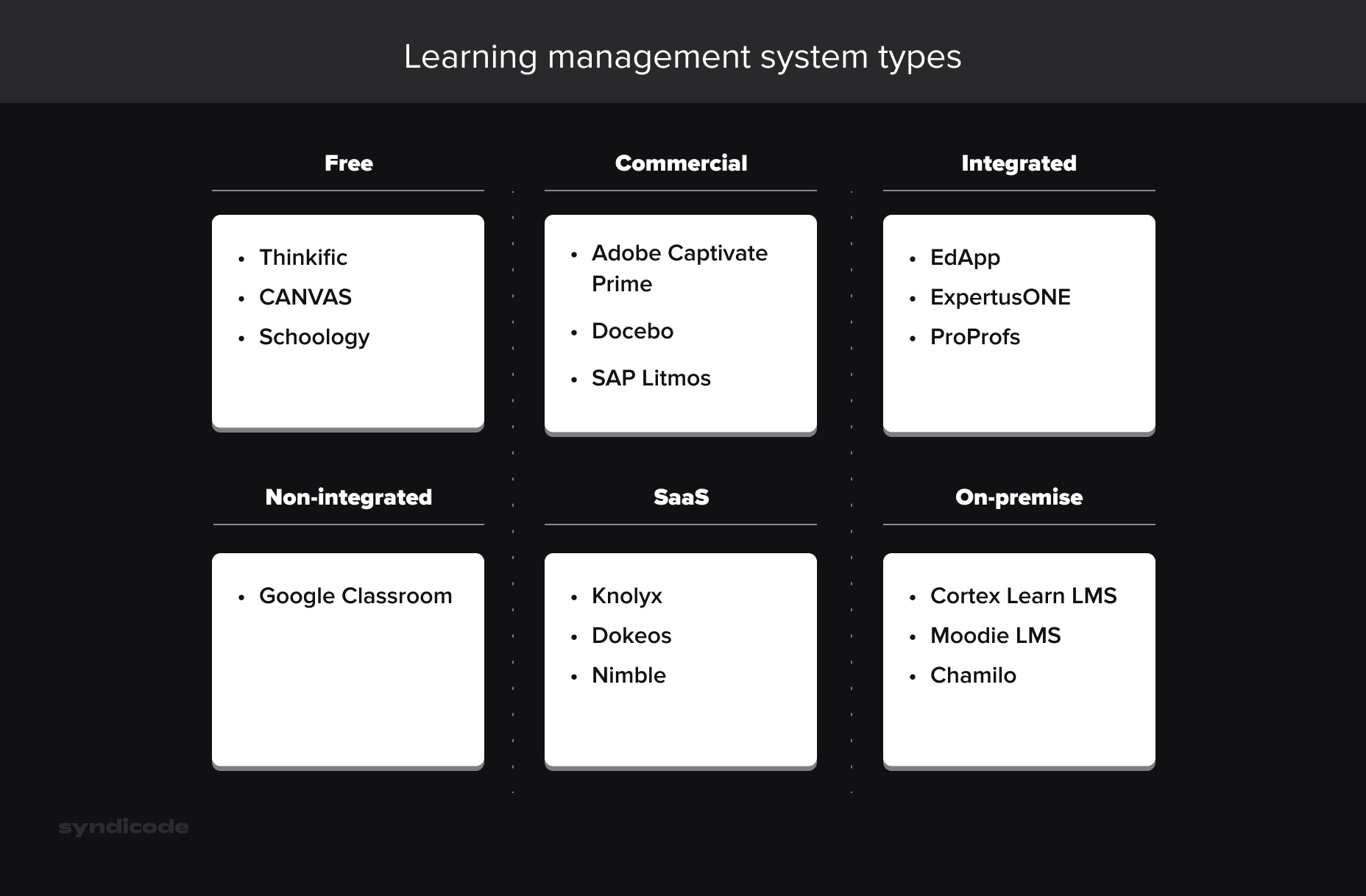The Ultimate Guide for Selecting Your Perfect LMS
In rapid world of training and training, picking the best learning management system, or LMS solution, has never been more critical than the present time. With a plethora of options at hand, finding the ideal solution that accommodates your institution's specific needs can seem daunting. An efficient LMS solution not only enhances educational experiences and also optimizes administration tasks, making it essential for instructors and companies alike to invest effort in their decision-making process.
This definitive list is designed to guide you in navigating important aspects when choosing an LMS platform. From user-friendliness to comprehensive reporting capabilities, recognizing the features that are significant the most is key to making sure you select a system that fosters engagement and delivers outcomes. Regardless of whether you are a small business, a big corporation, or an educational institution, the right LMS platform can significantly impact your learning initiatives and eventually lead to greater success.
Key Features to Evaluate
When selecting an LMS solution, one of the most important factors to evaluate is its user interface and overall UX. A intuitive interface can significantly enhance the learning process, making it simpler for both instructors and learners to interact with the system. Look for platforms that feature personalized dashboards, intuitive layouts, and mobile accessibility to ensure that users can engage with learning materials anytime and from anywhere. An attractive interface can encourage higher participation and better understanding among learners.
Another vital feature to consider is the system's ability to manage content. The ability to develop, upload, and arrange various types of learning materials, such as videos, quizzes, and resources, is essential for a complete learning experience. Check if the LMS system supports multimedia content, allows for easy updates, and includes version control. Additionally, consider whether the system has built-in authoring tools or integrates with popular content creation software to simplify the content development process.
Finally, reporting and analytics functionality is a crucial feature that should not be dismissed. Effective LMS platforms offer robust analytics tools that allow educators to track learner progress, assess engagement levels, and measure overall course effectiveness. Find features such as tailored reports, real-time analytics, and visual data tools. Access to valuable data can assist in decision-making and help enhance course offerings and learning outcomes over time.
Assessing Vendor Support
When selecting your ultimate LMS system, the level of vendor assistance is important for ensuring a smooth rollout and ongoing user experience. Begin by analyzing the availability of assistance methods. Check if the vendor has several methods such as telephonic support, email communication, live chat, or a support center. Fast access to efficient support can aid fix problems rapidly, minimizing disturbances in your educational environment.
Then, think about the caliber of the support team. Look into the vendor's image for customer service by seeking out ratings and client referrals. A knowledgeable and engaged support team can provide valuable guidance during both setup and support. https://www.kallidus.com/product/learn-lms/ 's also advantageous to find out if the support staff is available at hours that align with your preferences, especially if your organization works in multiple regions.

In conclusion, review the materials available for self-service support. A comprehensive resource center, tutorials, and forums can enable users to find information without assistance, lessening dependence on direct support. Evaluate whether the vendor spends in the creation of these materials, as this reflects their commitment to user success. Thorough support, both face-to-face and self-service, is a crucial element of an LMS platform that can significantly improve your complete journey.
Price vs. Worth Assessment
When choosing an LMS system, it is essential to perform a price versus worth assessment to make sure you are making a wise investment. The upfront costs of the system, including subscription fees and implementation costs, must be weighed against the long-term advantages it provides. Think about not only the short-term monetary investment but also the potential reductions in time and resources that an efficient LMS can provide.
Value can be assessed through the features and functions of the LMS platform that correspond with your company's objectives. A more expensive system may offer superior analytics, better user assistance, or compatibility capabilities that validate the investment. It is crucial to evaluate how these features will enhance educational results and improve engagement, as these factors directly contribute to the return on expenditure.
In conclusion, take into account the recurring costs associated with the LMS platform. This includes upkeep, assistance, and potential upgrades. A platform that seems budget-friendly at first may incur unexpected costs down the road. Balancing the total cost of ownership with the value it delivers will aid make sure that you choose an LMS that not only suits your financial plan but also fulfills your educational requirements efficiently.